Affiliate links on Android Authority may earn us a commission. Learn more.
Arc Search browser for Android is promising, but I'm not ready to replace Google Chrome just yet
October 11, 2024
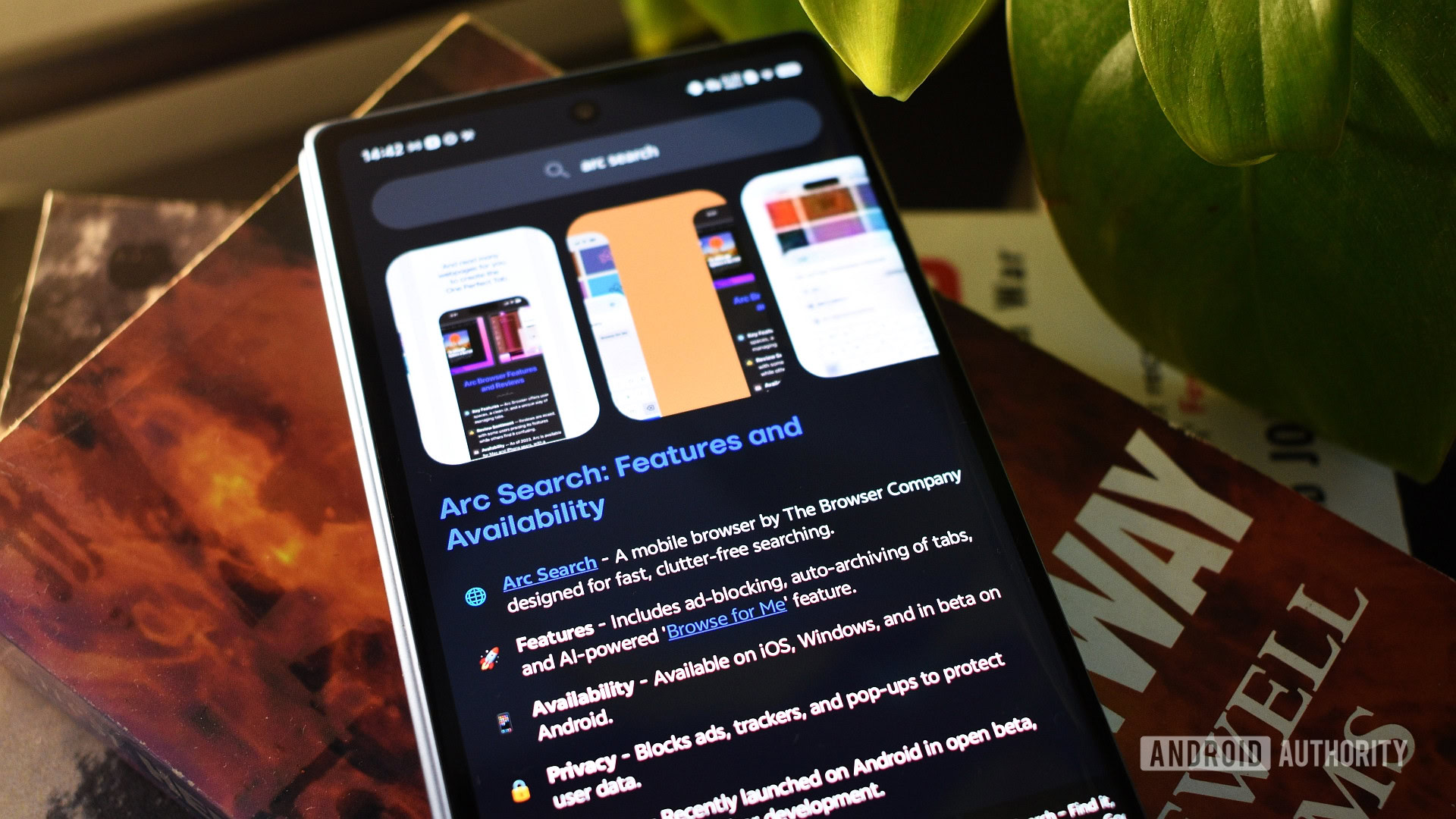
Innovation in the Android web browser space has slowed considerably in recent years. Industry leaders Mozilla Firefox and Google Chrome have focused on improving the user experience, bolstering speed, and diversifying other related offerings. However, the true essence of these browsers hasn’t changed much, if at all. So, when apps like the Arc Search browser arrive and offer a fresh take, there’s reason to be excited.
The fledgling browser, developed by New York-based The Browser Company, first landed on Apple platforms in 2022, with a Windows version following in April 2024. This month, the early access version for Android finally made its debut. But is it any good? Is Arc Search browser the Google Chrome challenger we’ve been waiting for? Can it topple Mozilla Firefox’s as my web browsing workhorse? Find my thoughts below.
Have you tried Arc Search on your Android phone?
Arc Search browser’s AI-powered ace
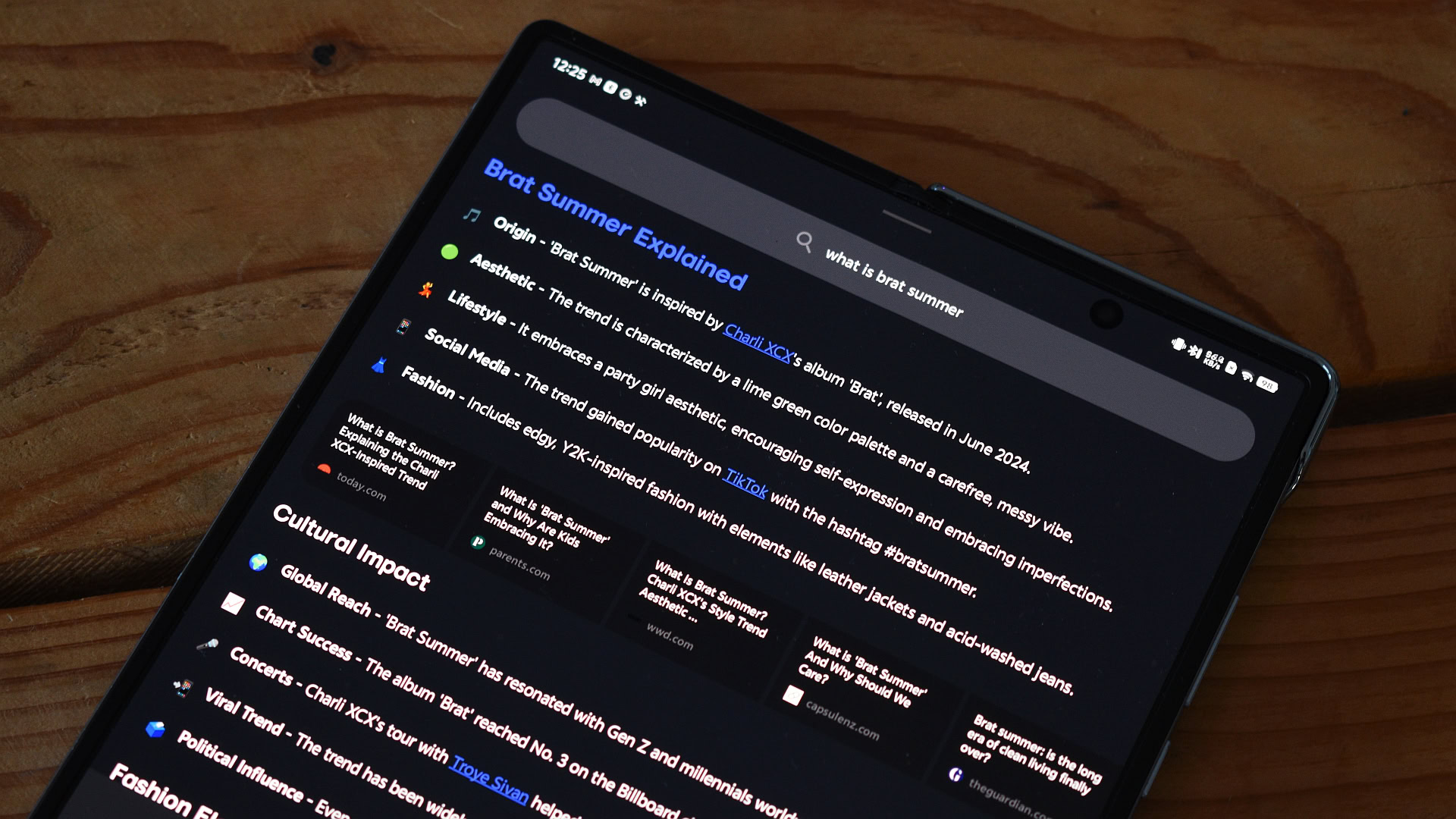
Arc Search is nominally a web browser, but after using it for a weekend, I feel it’s a poor way to describe the app. It utilizes the underpinnings of Google Chrome, but its execution and presentation are starkly different.
Although you’ll find the usual web browser trappings, such as tab management, a search bar, and content-blocking features, Arc Search browser is far more reminiscent of AI-powered answer engines like Perplexity. Arc supports web addresses, but they aren’t nearly as important as search queries. This is made even more apparent by the browser’s best feature: Browse For Me, a surprisingly useful AI summarization tool.
While querying Google Search provides potential routes to an answer, Browse For Me provides an actual answer.
After issuing a query, Arc Search collects and collates relevant information from several sites. It then presents it in a snapshot report with key points, useful details with sections, and the sources it used. While querying Google Search provides potential routes to an answer, Browse For Me provides an actual answer.
I was impressed at how well it summarized a wide range of topics, including “What is brat summer?,” “What is the next F1 race?,” and the rather indistinct query of “Manchester United.” When searching the latter during the team’s recent match against Aston Villa, Browse For Me provided surprisingly current details, from half-time injuries and substitutions to the best-performing players just minutes after the mid-way whistle.
Searching “Aston Villa” in the same tab just minutes later provided comparatively generic info about the team at the top of the page, including the club’s history and recent win against Bayern, instead of the current match details as presented in the previous Manchester United query. The feature would be better if it recognized context when processing search terms.
I also find that Browse For Me’s summaries are often far less focused and nuanced than Perplexity, ChatGPT, and Gemini. The “Best ways to drink coffee” results wandered into coffee etiquette and health benefits and only covered brewing methods — arguably the topic more closely related to the query than others — at the bottom of the page. The feature seems to have a difficult time prioritizing information.
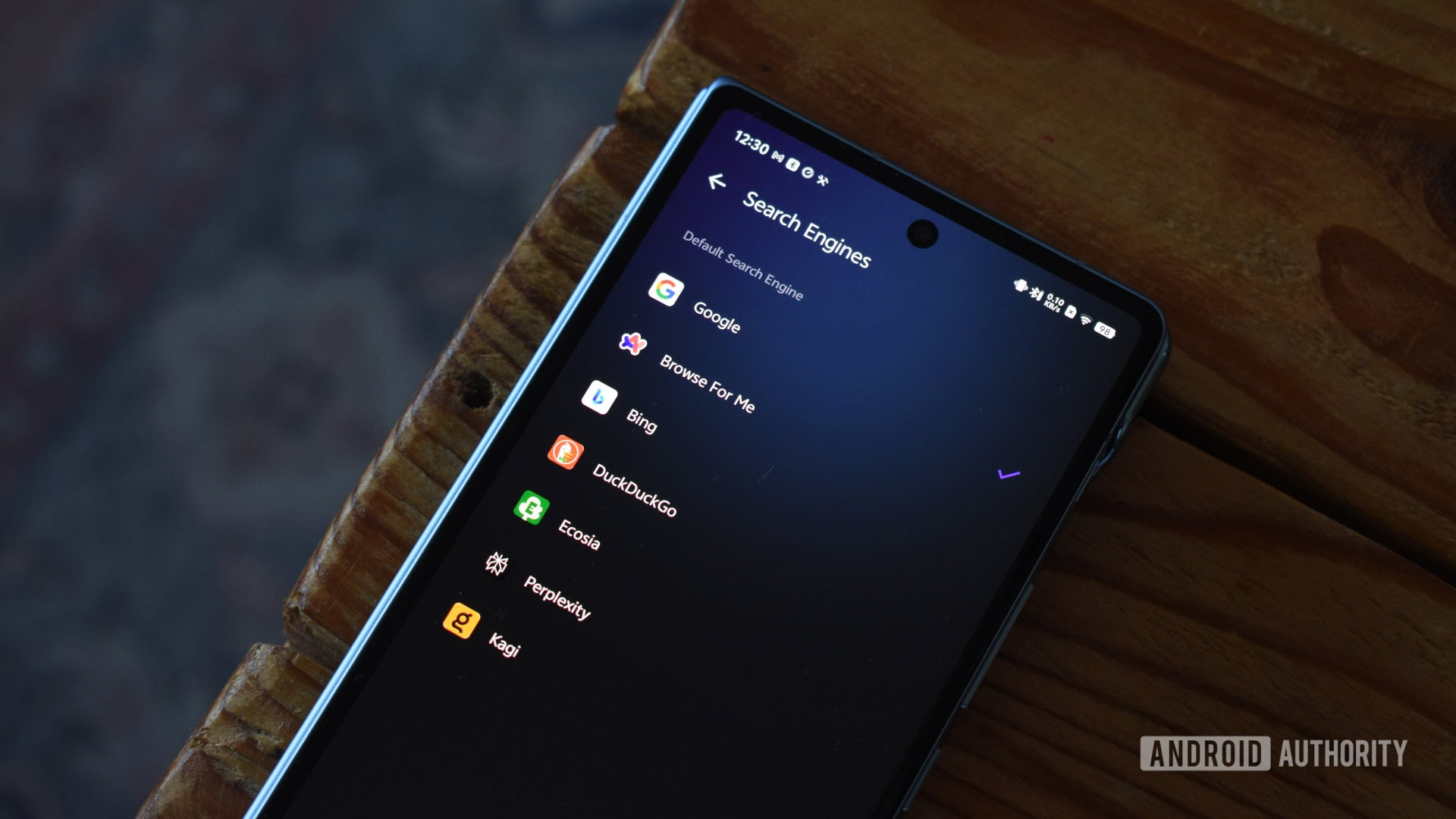
Despite these blips, Browse For Me is genuinely useful. The browser also does a fairly good job of making this feature visible and enticing. Even if Google or another provider is set as your default engine, each search bar query will be presented with a Browse For Me shortcut button alongside.
Browse For Me's summaries are often far less focused and nuanced than Perplexity and its ilk.
After toying with this part of Arc Search, I realized how different it is compared to traditional browsers. It bests Google Chrome and Mozilla Firefox for instant data discovery. As Browse For Me is an Arc exclusive, the new browser is a far better snapshot search tool than its more established rivals.
The web is an OS, and tabs are apps
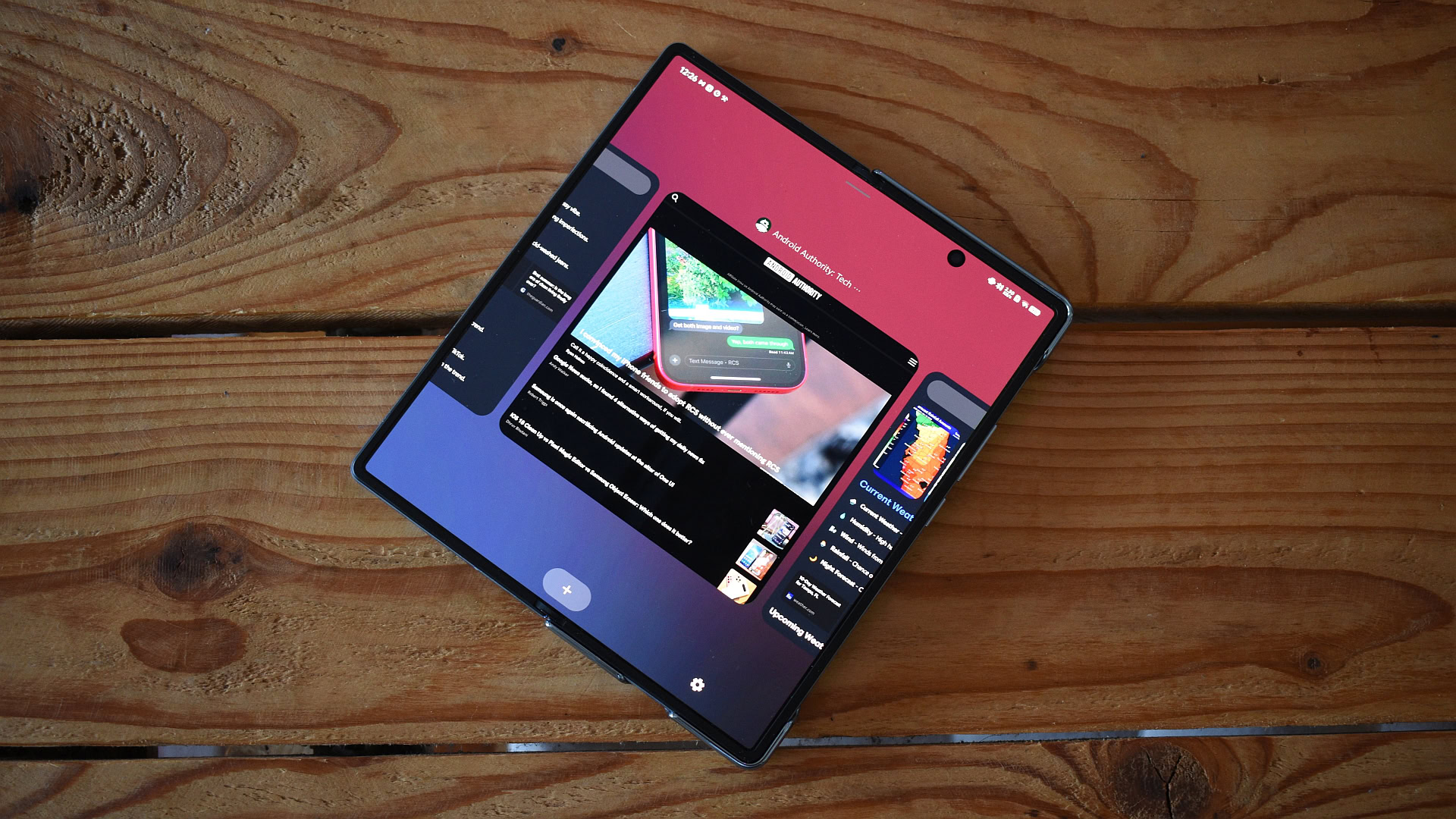
Another divergent design feature is how Arc Search manages your browsing session, particularly your opened tabs. It takes UI cues from Android, presenting tabs as if they were opened apps within a task switcher. Tap the tab button at the bottom left corner of the app, and each shrunken tab window will be presented one at a time. You can also scroll horizontally to highlight them.
Arc Search takes UI cues from Android, presenting tabs as if they were opened apps within a task switcher.
This arrangement might sound novel, but it’s far from practical. It certainly makes Arc Search feel like an OS within an OS, but it hampers the ability to quickly jump between tabs, especially if you’re 10+ tabs deep in a lengthy browsing session. Compare Arc’s tab switcher to Chrome (center) and Firefox (right) in the image below, and you’ll understand my frustration.
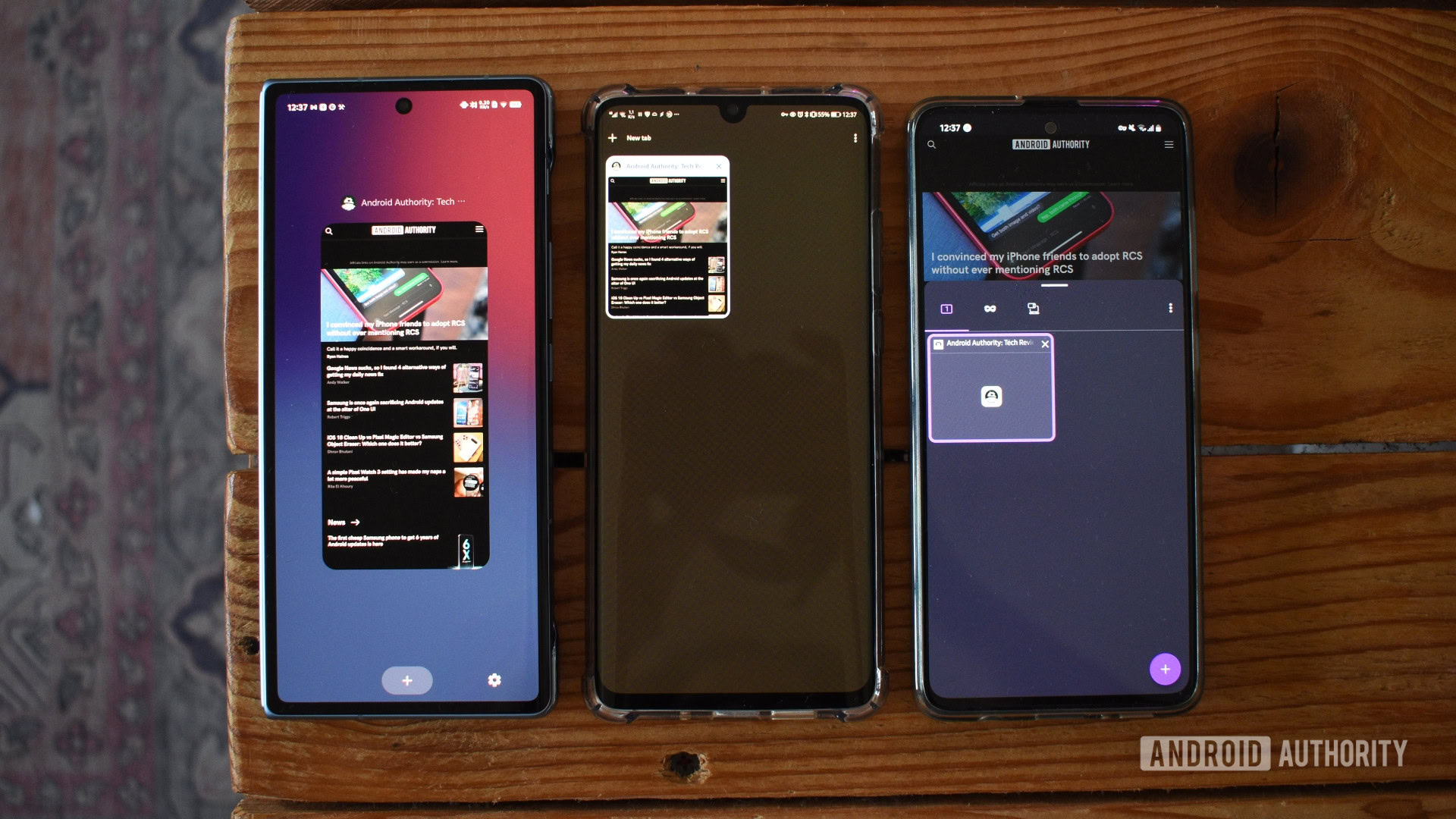
Arc also makes it challenging to spawn new tabs from current tabs. The app currently has no long-press context menu — a browser feature I cannot live without on a desktop, let alone mobile — to open hyperlinks in new tabs and copy links. Like browsing without a middle click, this makes Arc Search an absolute chore for research-heavy browsing sessions that require multiple sub-tabs. Surely this isn’t a deliberate design decision but an early access blip. I hope it’s fixed in the upcoming release.
Nevertheless, Arc Search offers a very useful automatic archive feature if you are wayward with your opened tabs. It’s a lot like browsing a history list, but these archived tabs seemingly open instantly. The time before tabs are archived can also be adjusted based on your needs.
Early access means early access
Arc Search is in its early access phase. I can’t be too harsh on it for this reason. The app’s Android version isn’t even openly advertised on Arc’s official website. However, considering that it is available to the public, it is important to mention the features it currently lacks.
- There’s no sync feature like on the other OS versions, but this also means you don’t need to create an Arc Search account to use it like on Windows.
- The browser lacks landscape support. This is particularly annoying when browsing on a foldable phone or a tablet.
- The onboarding process does a poor job of detailing the browser’s full list of features, specifically highlighting how to activate the incognito mode, how pinned web pages function, and how the archival feature can be best used.
- It currently lacks a Browse For Me widget, which would instantly boost its usefulness on my device.
- Arc and Bitwarden don’t play nice. I struggled to get the password manager screen to appear, making logging into sites a complete chore.
- Arc Search can only be installed on devices running Android 13 or newer. I’ve seen several users online try to install the browser on their Android 12 phones to no avail.
- It currently lacks several iOS features, including a reader mode, a real-time article summarization feature, voice search, and the quirky conversations feature that lets you query Arc as if you’re on a phone call.
- Unlike Firefox, Arc Search lacks extension support. While Chrome mobile doesn’t support them either, it’s worth remembering that some Chromium-based browsers, like Kiwi and Yandex, do work with Chrome extensions.
Is Arc Search browser worth installing?
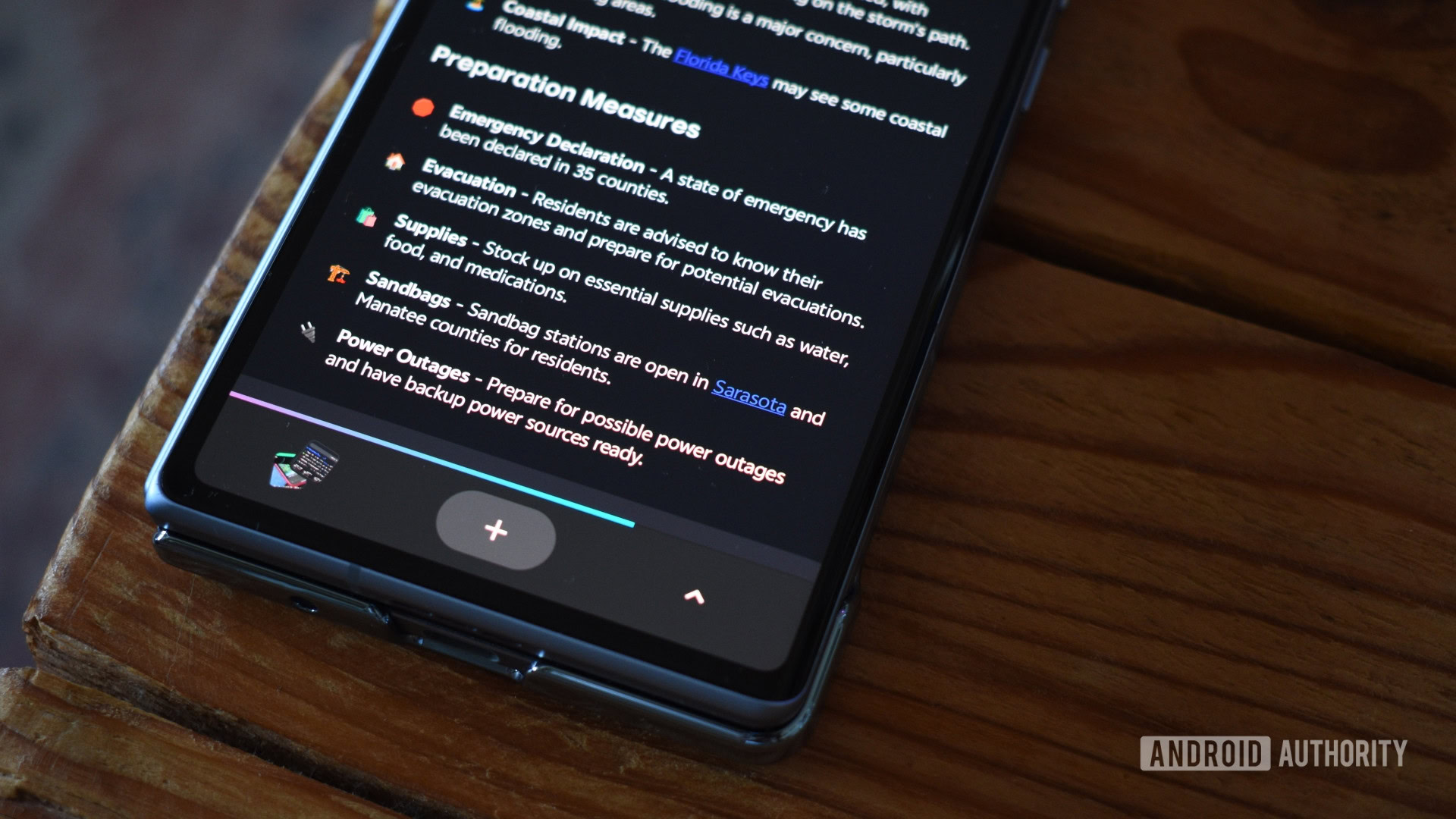
In a word, yes. Arc Search is well worth downloading and installing, even in its current state. It’s a surprisingly solid app. However, don’t expect it to replace Google Chrome or Mozilla Firefox as your primary web conduit. As I’ve mentioned, it’s wonderful for snapshot topic searches, but it’s not yet a comprehensive package.
It lacks features we take for granted in mature web browsers, from extension support and context menus to reliable password manager support. These features are imperative for getting things done online.
There are clear and exciting visions of its future, though. Arc Search browser offers a great auto archiving system, a useful pinned sites bar, content blocking by default, and its excellent Browse For Me feature. There’s also the promise of iOS features potentially making their way onto Android, which would really make it one of the more exciting browsers out there.
Arc Search won't remain my Android phone's default browser, but it'll definitely have a place on my pinned apps list.
That said, I’m not sure if web browsing needs to be made exciting. There’s a reason why the essence of the web browser hasn’t changed much in recent years. Familiarity is essential for daily workflow, and Arc feels alien.
As a result, Arc Search won’t remain my Android phone’s default browser, but it’ll definitely have a place on my pinned apps list. I’m excited to see where the app goes; it has heaps of potential. But I’m sticking to Firefox and Chrome for my daily browsing needs, at least for now.
Thank you for being part of our community. Read our Comment Policy before posting.